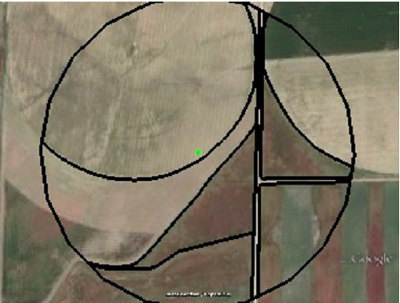By Jeff Bradshaw
Figure 1. On-farm tillage treatments used to evaluate the impact of spring disc on sawfly emergence.
- The wheat stem sawfly continues to be a major pest of wheat production throughout the High Plains, including Nebraska.
- Recent UNL research results reveal that a spring disc operation of fallow field edges can reduce sawfly emergence (Figure 1); however, effectiveness is limited and may have trade-offs.
- Wheat stem sawfly surveys have revealed that sawfly parasitoids may be well established in some locations and appear to be effective biological control agents.
- Ongoing research is working to understand how sawfly parasitoids become established.
- Landscape diversity might be an important factor guiding sawfly parasitoid establishment, or some grass species might exacerbate sawfly infestations (Figure 2).
- Meanwhile wheat breeding programs at UNL and other institutions are busy developing sawfly-resistant wheat lines.
- In our region, the wheat variety Warhorse continues to be the highest-yielding of the sawfly-resistant wheat varieties. The three-year average of Warhorse is only 41 bu/ac; however, it is highly resistant to sawfly lodging.

Figure 1. On-farm tillage treatments used to evaluate the impact of spring disc on sawfly emergence.
Future Research
The adoption of reduced tillage in wheat production systems clearly contributes to greater wheat stem sawfly populations in wheat. However, some wheat fields are embedded within diverse landscapes that might facilitate conservation of biological control (for example, parasitoids). Research is underway to understand these relationships. Meanwhile, some winter wheat varieties (for example, Warhorse) are available, but at a yield penalty under low-infestation conditions.